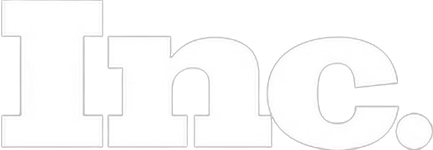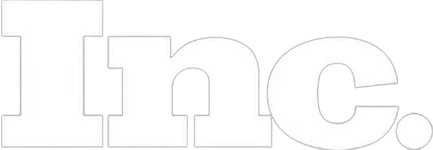Florida's New HOA Laws Effective July 1, 2024
Homeowners' associations (HOAs) in Florida are experiencing a wave of legislative changes that promise to reshape how these organizations operate. In our recent podcast, we dove into these developments with Jeffrey Kominsky, managing partner of LS Carlson Law's Florida office, who shared valuable insights on the impact of these new laws. These updates, effective as of July 1, 2024, aim to enhance transparency, accountability, and member rights, reflecting a broader trend toward empowering homeowners in Florida. Whether you’re a homeowner or involved in property management, understanding these changes is crucial to navigating the evolving landscape of HOA governance.
Florida House Bill 1203: Enhancing Transparency and Accountability
Florida House Bill 1203 introduces substantial reforms aimed at increasing transparency and accountability within HOAs. This bill mandates the online posting of governing documents, including covenants, restrictions, and financial records, ensuring that you, as a homeowner, have easy access to critical information. Additionally, the bill imposes criminal penalties for kickbacks and other forms of corruption within the association's management, holding board members and managers to a higher ethical standard.
Furthermore, HB 1203 enforces stricter meeting rules, requiring more detailed notice of meetings and ensuring that all members have an opportunity to participate in decision-making processes. This is a significant step toward empowering homeowners by making the inner workings of their HOAs more transparent and accessible.
Florida House Bill 59: Improving Communication and Access to Information
Florida House Bill 59 further enhances transparency by requiring HOAs to provide all members with copies of the association’s rules, covenants, and restrictions. These documents must also be posted on the association’s website, making it easier for you to stay informed about the governing rules. The bill also mandates that HOAs notify you of any updates or changes to these documents, fostering better communication and reducing the risk of misunderstandings or disputes.
This bill ensures that all members, whether new or long-standing, have access to the same information, promoting a more informed and cohesive community.
Florida House Bill 293: Strengthening Hurricane Protection
With Florida’s susceptibility to hurricanes, House Bill 293 addresses the need for enhanced hurricane protection measures within HOAs. This legislation requires associations to adopt specific standards for hurricane protection, such as shutters and other protective installations. Importantly, the bill prohibits HOAs from denying your applications for these protective measures, ensuring uniform safety across communities.
HB 293 not only prioritizes the safety of residents but also seeks to create a consistent approach to hurricane preparedness, reducing the likelihood of disputes over the installation of protective measures.
Florida House Bill 1029: Introducing the “My Safe Florida Condominium Pilot Program”
Another vital piece of legislation is Florida House Bill 1029, which establishes the "My Safe Florida Condominium Pilot Program." This program is designed to enhance hurricane resilience in condominiums by providing funding for inspections, grants for safety improvements, and requiring annual reporting on the status of these efforts.
The program represents a proactive approach to condominium safety, helping associations identify and address potential vulnerabilities before a hurricane strikes, thus offering peace of mind to residents.
Florida House Bill 1021: Addressing Conflict of Interest and Structural Safety
House Bill 1021 introduces several critical measures aimed at improving the governance and safety of community associations. It sets strict conflict of interest requirements for board members and management, ensuring that decisions are made in the best interest of the community rather than individual board members.
Additionally, the bill mandates milestone inspections for structural safety, particularly in older buildings, to prevent tragedies similar to the Surfside condominium collapse. The bill also enhances financial reporting requirements and appoints an Ombudsman to assist in resolving disputes within associations, providing an added layer of oversight and protection for you as a homeowner.
Florida Senate Bill 382: Continuing Education for Licensed Professionals
Lastly, Florida Senate Bill 382 addresses continuing education requirements for licensed professionals working within HOAs and condominium associations. The bill mandates the availability of distance learning options, making it easier for these professionals to meet their continuing education requirements. Additionally, it exempts long-term license holders from some continuing education requirements and allows proration of requirements for new licensees, offering more flexibility in meeting these obligations.
Kaufman Language and Legal Complications
One of the more complex issues discussed was the role of Kaufman language in governing documents. This "magic language" allows HOAs to automatically incorporate future changes in the law into their governing documents, ensuring that associations remain compliant with updated legal standards. However, not all associations include Kaufman language, which can lead to significant legal challenges. Without it, your HOA might claim they are not bound by new, homeowner-friendly laws, leading to disputes over which statutes apply.
While the absence of Kaufman language can be frustrating if you’re seeking the benefits of new laws, it originally served a purpose by protecting homeowners from sudden, potentially unfavorable changes in HOA governance that could be imposed without community input. This allowed homeowners to rely on the rules in place when they bought into the community. However, this lack of Kaufman language is now being used as a loophole to subvert regulations designed to curb overreaching HOAs, and this tactic will surely be challenged in court. While we don't want to speculate, the fact that so many laws are being passed to curb the very behavior that HOAs might try to circumvent through such loopholes should be closely observed. As these issues begin to surface in court, the interpretation and application of new laws versus existing governing documents will be a critical area of legal contention.
Practical Tips for Homeowners
Check for Kaufman Language: Review your HOA’s governing documents to see if Kaufman language is included. This will determine whether new laws automatically apply to your community.
Ensure Your Rights Are Protected: Stay vigilant about the changes your HOA implements and ensure that they are in line with the latest laws designed to protect your rights.
Stay Informed About Safety Measures: With the new mandates for structural safety and hurricane protection, make sure your association is taking the necessary steps to keep your home and community safe.
Know Your Resources: Familiarize yourself with where you can find your association’s governing documents, and don’t hesitate to seek legal advice if you believe your HOA is not complying with the law.
Impact Summary
Overall, these legislative changes represent a significant shift in Florida’s approach to HOA governance. The emphasis on transparency, accountability, and safety is designed to empower homeowners, providing you with greater access to information and stronger protections. As associations adapt to these new laws, the landscape of community living in Florida is set to become more homeowner-friendly, with reduced opportunities for overreach by HOAs.
Links to Resources
- Full Text of Florida House Bill 1203
- Full Text of Florida House Bill 59
- Full Text of Florida House Bill 293
- Full Text of Florida House Bill 1029
- Full Text of Florida House Bill 1021
- Full Text of Florida Senate Bill 382
- Florida Division of Corporations (Sunbiz)
Conclusion
The recent legislative changes mark a significant shift in Florida’s approach to HOA governance, placing greater emphasis on transparency, accountability, and homeowner rights. As Jeffrey Kominsky highlighted in our podcast, these laws are a response to ongoing challenges within community associations, driven by a need for better oversight and protection for residents. Whether it’s ensuring access to essential documents, enforcing hurricane protection measures, or holding board members accountable, these changes are designed to empower homeowners and create safer, more transparent communities.
If you're a homeowner navigating these new laws and need expert guidance, don't hesitate to contact LS Carlson Law. Our team is here to help you understand your rights and responsibilities under these evolving regulations.

Tell Us About Your HOA Dispute
When you hire LS Carlson Law, you can be assured you’ll be getting an aggressive firm fully dedicated to achieving your legal objectives. Don’t take our word for it, we encourage you to take a look at the numerous five-star client reviews. Call us now or fill out the form to set an appointment.









